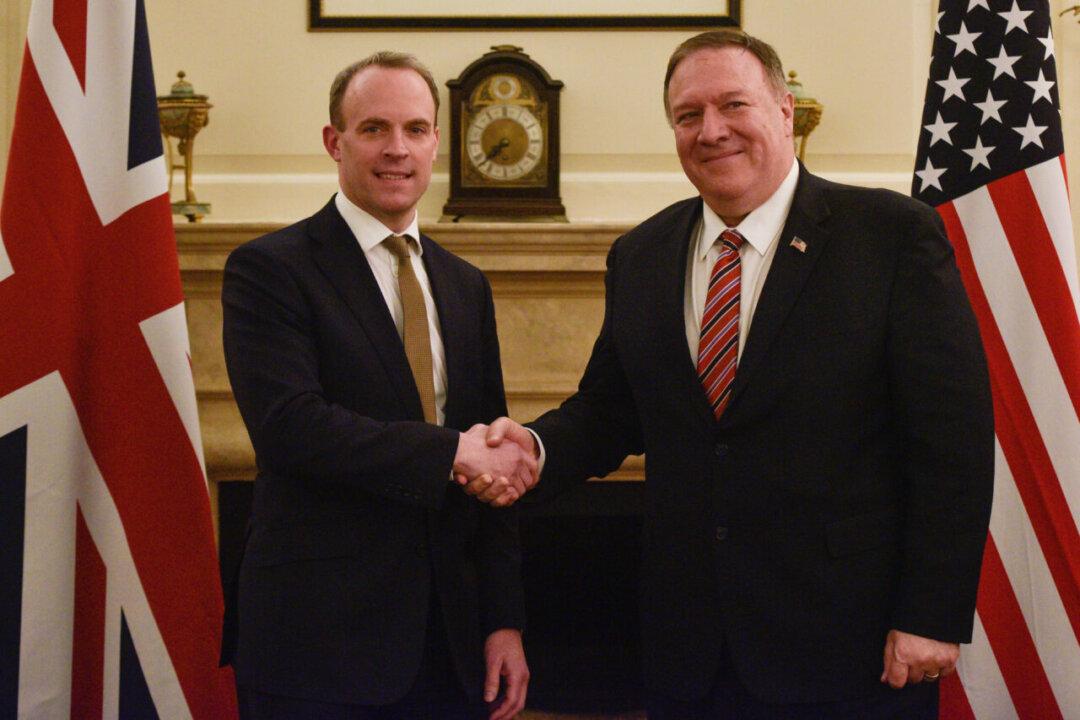U.S. Secretary of State Mike Pompeo is confident that the United States and the United Kingdom will work out a solution to build a highly secure 5G network despite differences in their approach. A decision made by the UK on Tuesday allows Chinese company Huawei’s equipment to be used in building a new mobile phone network, although not in the most sensitive areas. The UK’s partnership with Huawei is not considered ideal by the United States.
The United States believes that allowing a Chinese company with deep ties to the Chinese Communist Party (CCP) to build a communication network would give the CCP access to sensitive data like “private information of your citizens or the national security information,” Pompeo said in a public discussion with British Foreign Secretary Dominic Raab during a visit to the UK.





